1. “Top antidepressant drugs in the United States based on prescriptions dispensed in 2011-2012” Statista Pharmaceutical Products and Market Report [cited 2022 July 27]
2. Hillhouse TM, Porter JH. A brief history of the development of antidepressant drugs: from monoamines to glutamate. Exp Clin Psychopharmacol. 2015;23(1):1-21. doi:10.1037/a0038550 [cited 2022 July 27]
3. Van Voorhees BW, Smith S, Ewigman B. Treat depressed teens with medication and psychotherapy. J Fam Pract. 2008;57(11):735-9a. [cited 2022 July 27]
4. National Center for Health Statistics, Therapeutic Drug Use [cited 2022 July 27]
5. Stevens DL. Chronic fatigue. West J Med. 2001;175(5):315-319. doi:10.1136/ewjm.175.5.315 [cited 2022 July 27]
6. Grandjean P. Developmental fluoride neurotoxicity: an updated review. Environ Health. 2019 Dec 19;18(1):110. doi: 10.1186/s12940-019-0551-x. PMID: 31856837; PMCID: PMC6923889. [cited 2022 July 27]
7. FDA label Prozac (fluoxetine hydrochloride) 1987 [cited 2022 July 27]
8. Evans EA, Sullivan MA. Abuse and misuse of antidepressants. Subst Abuse Rehabil. 2014 Aug 14;5:107-20. doi: 10.2147/SAR.S37917. PMID: 25187753; PMCID: PMC4140701. [cited 2022 July 27]
9. Wilson E, Lader M. A review of the management of antidepressant discontinuation symptoms. Ther Adv Psychopharmacol. 2015;5(6):357-368. doi:10.1177/2045125315612334 [cited 2022 July 27]
10. Henssler J, Heinz A, Brandt L, Bschor T. Antidepressant Withdrawal and Rebound Phenomena. Dtsch Arztebl Int. 2019;116(20):355-361. doi:10.3238/arztebl.2019.0355 [cited 2022 July 27]
11. Van Geffen EC, Brugman M, Van Hulten R, Bouvy ML, Egberts AC, Heerdink ER. Patients‘ concerns about and problems experienced with discontinuation of antidepressants. Int J Pharm Pract. 2007; 15:291–293. [cited 2022 July 27]
12. Offidani E, Guidi J, Tomba E, Fava GA. Efficacy and tolerability of benzodiazepines versus antidepressants in anxiety disorders: a systematic review and meta-analysis. Psychother Psychosom. 2013;82(6):355-62. doi: 10.1159/000353198. Epub 2013 Sep 20. PMID: 24061211. [cited 2022 July 27]
13. Black K, Shea C, Dursun S, Kutcher S. Selective serotonin reuptake inhibitor discontinuation syndrome: proposed diagnostic criteria. J Psychiatry Neurosci. 2000 May;25(3):255-61. PMID: 10863885; PMCID: PMC1407715. [cited 2022 July 27]
14. Lane RM. SSRI-induced extrapyramidal side-effects and akathisia: implications for treatment. J Psychopharmacol. 1998;12(2):192-214. doi: 10.1177/026988119801200212. PMID: 9694033.[cited 2022 July 27]
15. Lacasse JR, “Serotonin and Depression: A Disconnect between the Advertisements and the Scientific Literature.” PLOS Medicine 2005 Dec; 2(12): e392 [cited 2022 July 27]
16. Danborg PB, Valdersdorf M, Gøtzsche PC. Long-term harms from previous use of selective serotonin reuptake inhibitors: A systematic review. Int J Risk Saf Med. 2019;30(2):59-71. doi: 10.3233/JRS-180046. PMID: 30714974; PMCID: PMC6839490. [cited 2022 July 27]
17. Kirsch I. Antidepressants and the Placebo Effect. Z Psychol. 2014;222(3):128-134. doi:10.1027/2151-2604/a000176 [cited 2024 April 29]
18. Fan KY, Liu HC. Delirium Associated With Fluoxetine Discontinuation: A Case Report. Clin Neuropharmacol. 2017 May/Jun;40(3):152-153. doi: 10.1097/WNF.0000000000000214. PMID: 28452902. [cited 2022 July 27]
19. Wilson E, Lader M. A review of the management of antidepressant discontinuation symptoms. Ther Adv Psychopharmacol. 2015 Dec;5(6):357-68. doi: 10.1177/2045125315612334. PMID: 26834969; PMCID: PMC4722507. [cited 2022 July 27]
20. US Dept of Health and Human Services, Antidepressant use in children, adolescents, and adults. published online Jan 11, 2017 [cited 2022 July 27]
21. Sharma T, Guski LS, Freund N, Gøtzsche PC. Suicidality and aggression during antidepressant treatment: systematic review and meta-analyses based on clinical study reports. BMJ 2016;352:i65. [cited 2022 July 27]
22. Bielefeldt AØ, Danborg PB, Gøtzsche PC. Precursors to suicidality and violence on antidepressants: systematic review of trials in adult healthy volunteers. J R Soc Med 2016;109:381-392. [cited 2022 July 27]
23. Molero Y, Lichtenstein P, Zetterqvist J, Gumpert CH, Fazel S. Selective Serotonin Reuptake Inhibitors and Violent Crime: A Cohort Study. PLoS Med. 2015;12(9):e1001875. Published 2015 Sep 15. doi:10.1371/journal.pmed.1001875 [cited 2022 July 27]
24. Lagerberg T, Fazel S, Molero Y, et al. Associations between selective serotonin reuptake inhibitors and violent crime in adolescents, young, and older adults – a Swedish register-based study. Eur Neuropsychopharmacol. 2020;36:1-9. doi:10.1016/j.euroneuro.2020.03.024 [cited 2022 July 27]
25. Moore TJ, Glenmullen J, Furberg CD. Prescription drugs associated with reports of violence towards others. PLoS One. 2010 Dec 15;5(12):e15337. doi: 10.1371/journal.pone.0015337. PMID: 21179515; PMCID: PMC3002271. [cited 2022 July 27]
26. Pesce N, “Anti-anxiety medication prescriptions have spiked 34% during the coronovirrus pandemic.” May 26 2020 Marketwatch Report [cited 2022 July 27]
27. Miron O, Yu KH, Wilf-Miron R, Kohane IS. Suicide Rates Among Adolescents and Young Adults in the United States, 2000-2017. JAMA. 2019;321(23):2362-2364. doi:10.1001/jama.2019.5054 [cited 2022 July 27]
28. Zajecka J, Tracy KA, Mitchell S. Discontinuation symptoms after treatment with serotonin reuptake inhibitors: a literature review. J Clin Psychiatry. 1997 Jul;58(7):291-7. doi: 10.4088/jcp.v58n0702. PMID: 9269249.[cited 2022 July 27]
29. Haddad P. Newer antidepressants and the discontinuation syndrome. J Clin Psychiatry. 1997;58 Suppl 7:17-21; discussion 22. PMID: 9219489. [cited 2022 July 27]
30. Akagi H, Kumar TM. Lesson of the week: Akathisia: overlooked at a cost. BMJ. 2002;324(7352):1506-1507. doi:10.1136/bmj.324.7352.1506 [cited 2022 July 27]
31. Brambilla P, Cipriani A, Hotopf M, Barbui C. Side-effect profile of fluoxetine in comparison with other SSRIs, tricyclic and newer antidepressants: a meta-analysis of clinical trial data. Pharmacopsychiatry. 2005 Mar;38(2):69-77. doi: 10.1055/s-2005-837806. PMID: 15744630. [cited 2022 July 27]
32. Voican CS, Corruble E, Naveau S, Perlemuter G. Antidepressant-induced liver injury: a review for clinicians. Am J Psychiatry. 2014 Apr;171(4):404-15. doi: 10.1176/appi.ajp.2013.13050709. PMID: 24362450. [cited 2022 July 27]
33. De Picker L, Van Den Eede F, Dumont G, Moorkens G, Sabbe BG. Antidepressants and the risk of hyponatremia: a class-by-class review of literature. Psychosomatics. 2014 Nov-Dec;55(6):536-47. doi: 10.1016/j.psym.2014.01.010. Epub 2014 Apr 21. PMID: 25262043. [cited 2022 July 27]
34. Jonsson GW, Moosa MY, Jeenah FY. Toxic epidermal necrolysis and fluoxetine: a case report. J Clin Psychopharmacol. 2008 Feb;28(1):93-5. doi: 10.1097/jcp.0b013e3181604015. PMID: 18204349. [cited 2022 July 27]
35. Bloechliger M, Ceschi A, Rüegg S, Kupferschmidt H, Kraehenbuehl S, Jick SS, Meier CR, Bodmer M. Risk of Seizures Associated with Antidepressant Use in Patients with Depressive Disorder: Follow-up Study with a Nested Case-Control Analysis Using the Clinical Practice Research Datalink. Drug Saf. 2016 Apr;39(4):307-21. doi: 10.1007/s40264-015-0363-z. PMID: 26650063. [cited 2022 July 27]
36. Laporte S, Chapelle C, Caillet P, Beyens MN, Bellet F, Delavenne X, Mismetti P, Bertoletti L. Bleeding risk under selective serotonin reuptake inhibitor (SSRI) antidepressants: A meta-analysis of observational studies. Pharmacol Res. 2017 Apr;118:19-32. doi: 10.1016/j.phrs.2016.08.017. Epub 2016 Aug 10. PMID: 27521835. [cited 2022 July 27]
37. Amsterdam JD, Garcia-España F, Goodman D, Hooper M, Hornig-Rohan M. Breast enlargement during chronic antidepressant therapy. J Affect Disord. 1997 Nov;46(2):151-6. doi: 10.1016/s0165-0327(97)00086-4. PMID: 9479619. [cited 2022 July 27]
38. Kaufman KR, Podolsky D, Greenman D, Madraswala R. Antidepressant-selective gynecomastia. Ann Pharmacother. 2013 Jan;47(1):e6. doi: 10.1345/aph.1R491. Epub 2013 Jan 16. PMID: 23324513. [cited 2022 July 27]
39. Gerber PE, Lynd LD. Selective serotonin-reuptake inhibitor-induced movement disorders. Ann Pharmacother. 1998 Jun;32(6):692-8. doi: 10.1345/aph.17302. PMID: 9640489. [cited 2022 July 27]
40. Henry C, Sorbara F, Lacoste J, Gindre C, Leboyer M. Antidepressant-induced mania in bipolar patients: identification of risk factors. J Clin Psychiatry. 2001 Apr;62(4):249-55. doi: 10.4088/jcp.v62n0406. PMID: 11379838.[cited 2022 July 27]
41. Machado-Vieira R, Baumann J, Wheeler-Castillo C, et al. The Timing of Antidepressant Effects: A Comparison of Diverse Pharmacological and Somatic Treatments. Pharmaceuticals (Basel). 2010;3(1):19-41. Published 2010 Jan 6. doi:10.3390/ph3010019 [cited 2022 July 27]
42. Gomez R, Huber J, Tombini G, Barros HM. Acute effect of different antidepressants on glycemia in diabetic and non-diabetic rats. Braz J Med Biol Res. 2001 Jan;34(1):57-64. doi: 10.1590/s0100-879×2001000100007. PMID: 11151029. [cited 2023 May 17]
43. Desimone ME, Weinstock RS. Hypoglycemia. [Updated 2018 May 5]. In: Feingold KR, Anawalt B, Boyce A, et al., editors. Endotext [Internet]. South Dartmouth (MA): MDText.com, Inc.; 2000-. Available from: https://www.ncbi.nlm.nih.gov/books/NBK279137/ [cited 2023 May 17]
44. Jacques A, Chaaya N, Beecher K, Ali SA, Belmer A, Bartlett S. The impact of sugar consumption on stress driven, emotional and addictive behaviors. Neurosci Biobehav Rev. 2019 Aug;103:178-199. doi: 10.1016/j.neubiorev.2019.05.021. Epub 2019 May 21. PMID: 31125634.[cited 2023 May 17]
45. Brambilla P, Cipriani A, Hotopf M, Barbui C. Side-effect profile of fluoxetine in comparison with other SSRIs, tricyclic and newer antidepressants: a meta-analysis of clinical trial data. Pharmacopsychiatry. 2005 Mar;38(2):69-77. doi: 10.1055/s-2005-837806. PMID: 15744630.[cited 2023 May 17]
46. Schildkrout B. How to Move Beyond the Diagnostic and Statistical Manual of Mental Disorders/International Classification of Diseases. J Nerv Ment Dis. 2016 Oct;204(10):723-727. doi: 10.1097/NMD.0000000000000547. PMID: 27748696. [cited 2022 July 27]
47. Harris E, Eng HY, Kowatch R, Delgado SV, Saldaña SN. Disinhibition as a side effect of treatment with fluvoxamine in pediatric patients with obsessive-compulsive disorder. J Child Adolesc Psychopharmacol. 2010 Aug;20(4):347-53. doi: 10.1089/cap.2009.0126. PMID: 20807074. [cited 2022 July 27]
48. Sarkar S, Varshney M. Yoga and substance use disorders: A narrative review. Asian J Psychiatr. 2017 Feb;25:191-196. doi: 10.1016/j.ajp.2016.10.021. Epub 2016 Nov 5. PMID: 28262148. [cited 2023 Mar 9]
49. Angelopoulou E, Anagnostouli M, Chrousos GP, Bougea A. Massage therapy as a complementary treatment for Parkinson’s disease: A Systematic Literature Review. Complement Ther Med. 2020 Mar;49:102340. doi: 10.1016/j.ctim.2020.102340. Epub 2020 Feb 6. PMID: 32147033. [cited 2023 May 17]
50. Geoffroy PA, Micoulaud Franchi JA, Lopez R, Schroder CM; membres du consensus Mélatonine SFRMS. The use of melatonin in adult psychiatric disorders: Expert recommendations by the French institute of medical research on sleep (SFRMS). Encephale. 2019 Nov;45(5):413-423. doi: 10.1016/j.encep.2019.04.068. Epub 2019 Jun 24. PMID: 31248601. [cited 2023 May 17]
51. Marcus, M. T., & Zgierska, A. (2009). Mindfulness-based therapies for substance use disorders: part 1. Substance abuse, 30(4), 263–265. https://doi.org/10.1080/08897070903250027 [cited 2023 May 17]
52. Firth, J., Gangwisch, J. E., Borisini, A., Wootton, R. E., & Mayer, E. A. (2020). Food and mood: how do diet and nutrition affect mental wellbeing?. BMJ (Clinical research ed.), 369, m2382. https://doi.org/10.1136/bmj.m2382 [cited 2023 May 17]
53. Clapp, M., Aurora, N., Herrera, L., Bhatia, M., Wilen, E., & Wakefield, S. (2017). Gut microbiota’s effect on mental health: The gut-brain axis. Clinics and practice, 7(4), 987. https://doi.org/10.4081/cp.2017.987 [cited 2023 May 17]
54. Clinical Guidelines for Withdrawal Management and Treatment of Drug Dependence in Closed Settings. Geneva: World Health Organization; 2009. 4, Withdrawal Management. Available from: https://www.ncbi.nlm.nih.gov/books/NBK310652/ [cited 2023 May 17]
55. Oesterle, T. S., Kolla, B., Risma, C. J., Breitinger, S. A., Rakocevic, D. B., Loukianova, L. L., Hall-Flavin, D. K., Gentry, M. T., Rummans, T. A., Chauhan, M., & Gold, M. S. (2020). Substance Use Disorders and Telehealth in the COVID-19 Pandemic Era: A New Outlook. Mayo Clinic proceedings, 95(12), 2709–2718. https://doi.org/10.1016/j.mayocp.2020.10.011 [cited 2023 May 17]
56. Evans EA, Sullivan MA. Abuse and misuse of antidepressants. Subst Abuse Rehabil. 2014 Aug 14;5:107-20. doi: 10.2147/SAR.S37917. PMID: 25187753; PMCID: PMC4140701.[cited 2023 May 17]
57. Chiappini S, Vickers-Smith R, Guirguis A, Corkery JM, Martinotti G, Schifano F. A Focus on Abuse/Misuse and Withdrawal Issues with Selective Serotonin Reuptake Inhibitors (SSRIs): Analysis of Both the European EMA and the US FAERS Pharmacovigilance Databases. Pharmaceuticals (Basel). 2022 May 1;15(5):565. doi: 10.3390/ph15050565. PMID: 35631391; PMCID: PMC9146999.[cited 2023 May 17]
58. Hengartner M, Ploderl M, Newer-generation Antidepressants and Suicide Risk …. published in the Journal of Psychotherapy Psychosomatics [published June 4, 2019] [cited 2024 April 29]
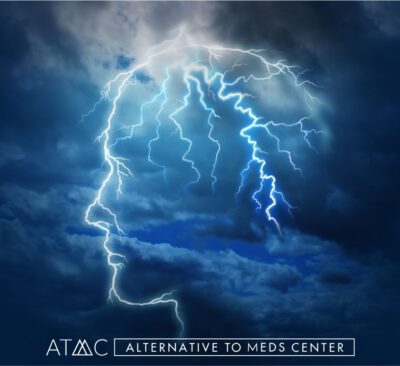 Prozac withdrawal should be done slowly, not all at once due to the overwhelming reactions that may ensue. Prozac’s relatively long half-life may allow for easier withdrawal than other antidepressants that have a shorter half-life. However, each person has a unique health profile, and reactions differ from person to person, and in all cases, careful planning and oversight are required for the best outcome.3,19
Prozac withdrawal should be done slowly, not all at once due to the overwhelming reactions that may ensue. Prozac’s relatively long half-life may allow for easier withdrawal than other antidepressants that have a shorter half-life. However, each person has a unique health profile, and reactions differ from person to person, and in all cases, careful planning and oversight are required for the best outcome.3,19
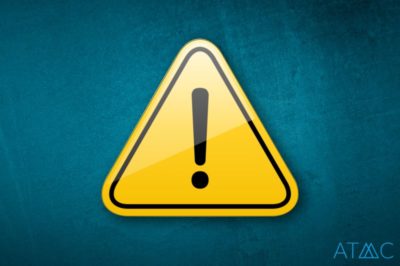 According to recent statistics, Prozac is once again poised among the top three most prescribed antidepressant drugs in the world. Statista reported 24,961,000 Prozac prescriptions were written in the US alone in 2011-2012.1
According to recent statistics, Prozac is once again poised among the top three most prescribed antidepressant drugs in the world. Statista reported 24,961,000 Prozac prescriptions were written in the US alone in 2011-2012.1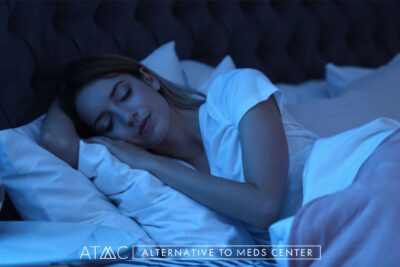 Sleep:
Sleep: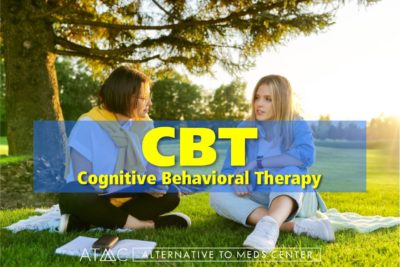 According to various psychiatric associations around the world, pharmacological solutions are not always the recommended first line of defense. For example, often the recommendation of psychotherapy is shown to work compared to lesser improvements from taking antidepressants. For example, two-thirds of adolescents reported relapse phenomena (return of original symptoms) after completing a course of SSRI treatment in the absence of psychotherapy.3
According to various psychiatric associations around the world, pharmacological solutions are not always the recommended first line of defense. For example, often the recommendation of psychotherapy is shown to work compared to lesser improvements from taking antidepressants. For example, two-thirds of adolescents reported relapse phenomena (return of original symptoms) after completing a course of SSRI treatment in the absence of psychotherapy.3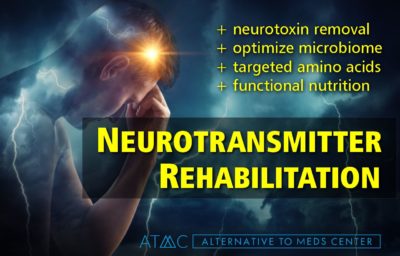 At Alternative to Meds Center, programming and
At Alternative to Meds Center, programming and 







